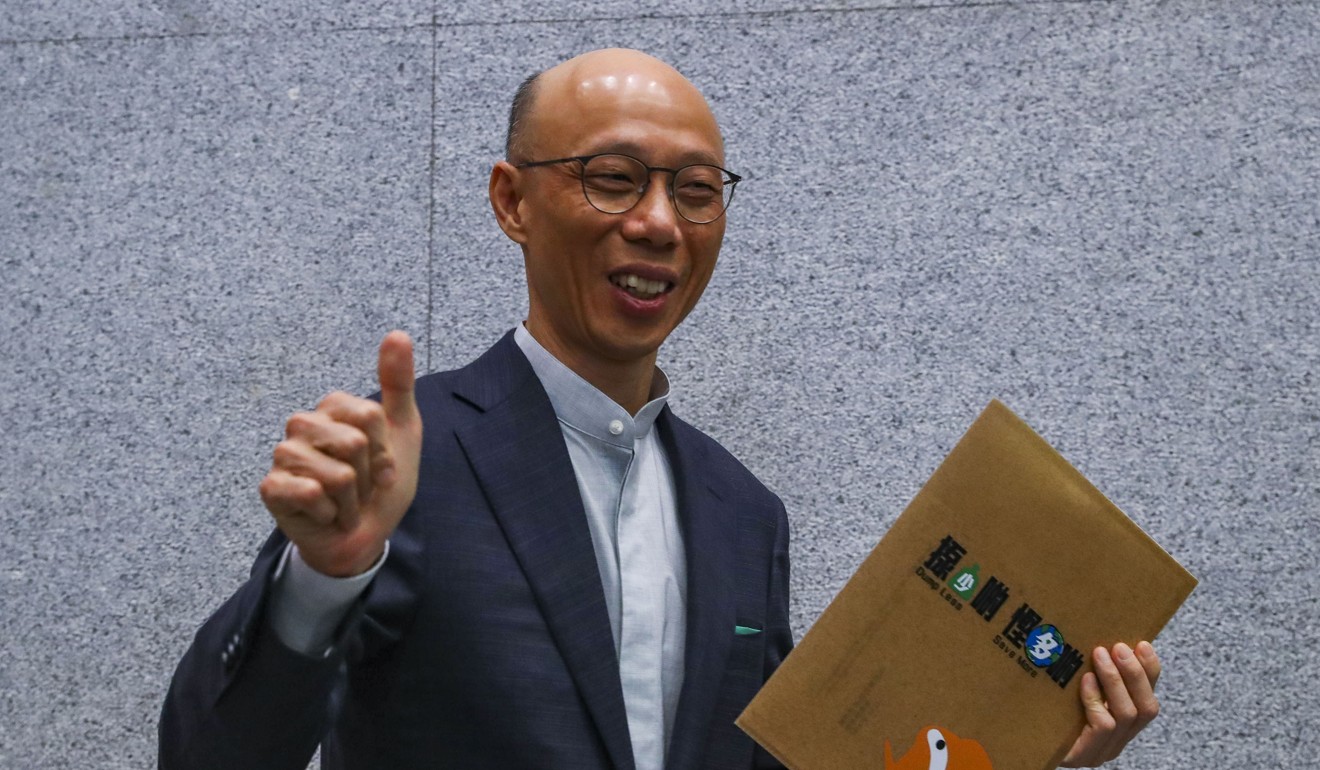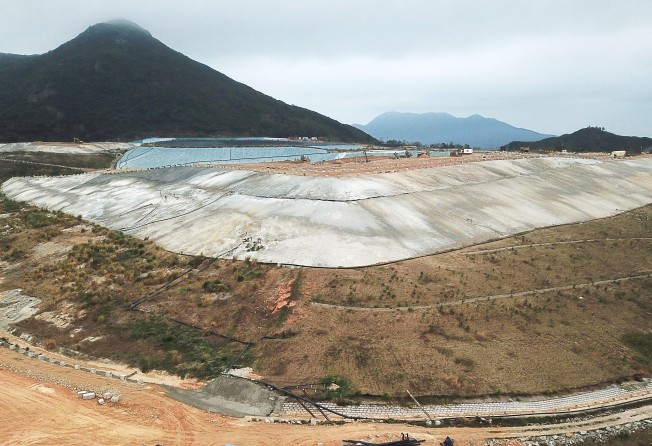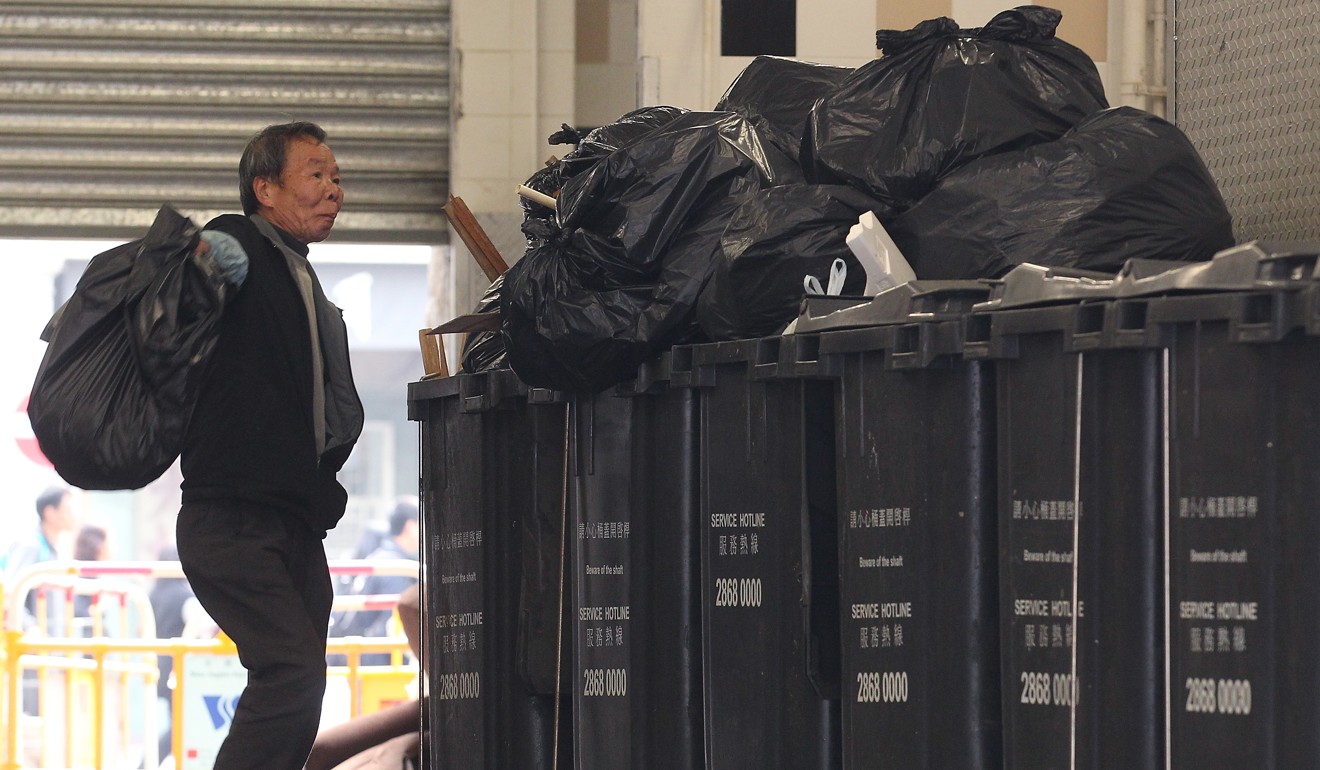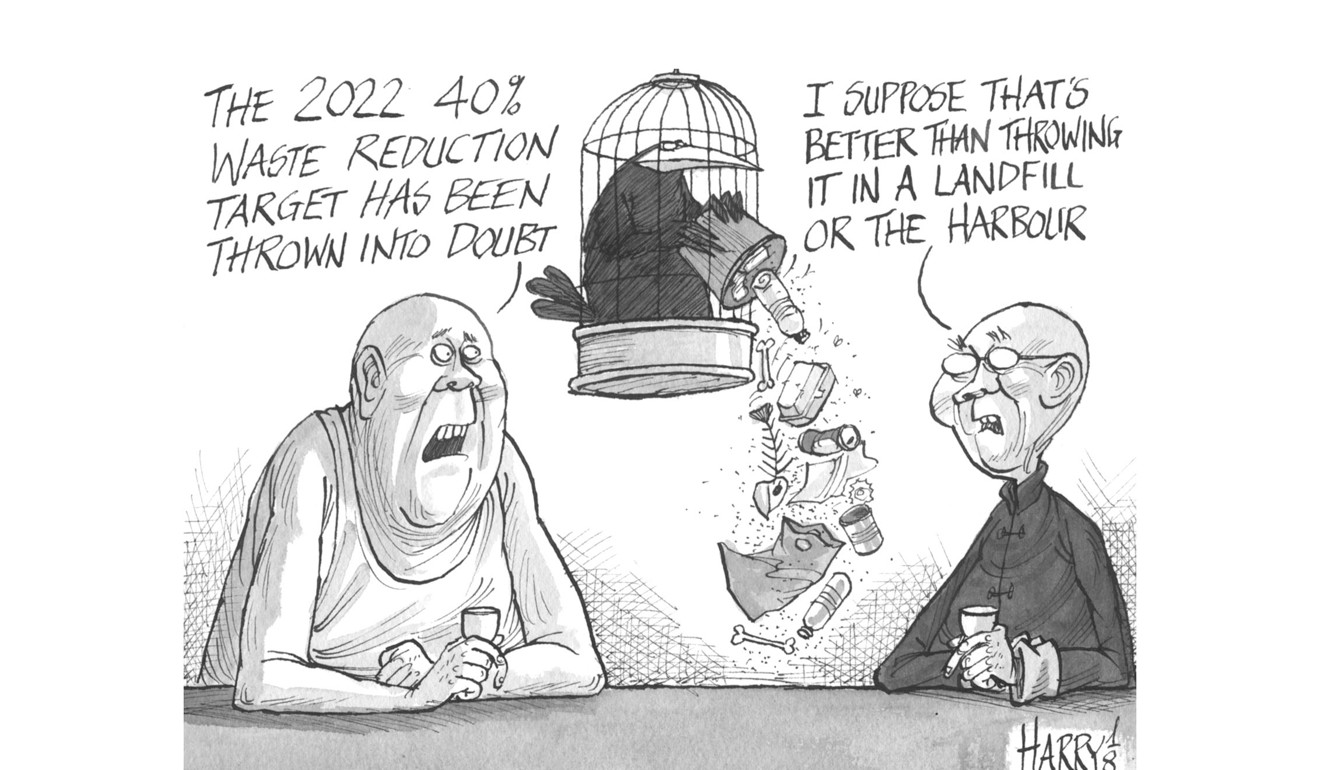
Waste charging scheme to be mandatory in Hong Kong, but 14-year delay casts doubt on hitting lower rubbish targets for 2022
- Environment minister announces bill to be tabled, but green groups fret about political speed bumps as implementation delayed to late 2020 at least

Hong Kong is finally pushing ahead with a mandatory waste charging scheme, but it will be delayed for at least a year, throwing into doubt the government’s municipal rubbish reduction targets for 2022.
Environment minister Wong Kam-sing announced on Wednesday that a draft bill would be tabled at the Legislative Council on November 14 – three government administrations over 14 years and multiple public consultations after the idea was first floated.

But implementation, Wong conceded, would be delayed to late 2020 at least and legislative scrutiny would fall during district council election campaign season, raising concerns from green groups about political speed bumps that could further derail the timetable.
“The implementation of municipal solid waste charging sits at the centre of our overall waste reduction strategy,” Wong said, insisting it was more about direction than timing. “It will provide the necessary financial incentives to drive behavioural and cultural changes and … reduce waste disposal effectively.”
Wong said there was public support for the scheme, and most trades and residents found the charging mode and mechanisms “agreeable” while admitting that the work ahead would be challenging.
The minister sidestepped questions on whether the 40 per cent waste reduction target he set in 2014 for 2022 could still be met.
The assumption was that it could be done via policies such as waste charging and better waste infrastructure.
The city of Taipei has been charging for municipal waste since 2000, and Seoul since 1995. Both have seen 30 per cent reductions in waste.

Under Hong Kong’s plan, 80 per cent of rubbish generated by housing estates, residential buildings and shops using government refuse collection services will have to go into designated bags priced at an average of 11 HK cents (US$0.01) per litre. The remaining 20 per cent will be charged by weight.
Rule breakers will be slapped with a HK$1,500 fine, enforced by officers from the Environmental Protection and Food and Environmental Hygiene departments. They will be empowered to enter estates.
The Environment Bureau admitted it would be impossible to monitor the city’s 22,000 waste collection points and 45,000 buildings, so it would have to rely on a “risk-based” approach.

This would mean drawing up a list of black spots based on intelligence, video surveillance and complaints from the public to concentrate enforcement efforts. A hotline and smartphone app will be set up to allow people to report non-compliance.
Officials will allow a grace period of between 12 and 18 months after the legislation passes for the public and other stakeholders to prepare for the new charging regime. A 240-member outreach team will be tasked with spreading the word and educating the public during this period.
The government will earmark an additional HK$300 million to HK$400 million in the next financial year to bolster these efforts. After implementation, the allocation will increase to between HK$800 million and HK$1 billion.
The cash injection will form the basis of a “dedicated fund” to sustain the scheme when it comes into effect, with charging scheme revenue feeding into it in the future.
Environmental advocacy groups pointed out that Hong Kong was already a latecomer, and called on lawmakers to expedite the process.
“A challenge could come from political parties who don’t want the charge to hit their voters’ pockets, but I urge political parties to consider the policy from a long-term sustainability perspective and to support passage of the bill,” Green Earth executive director Edwin Lau Che-feng said.
“This waste charging policy has been dragged on for 14 years and the public reached a consensus on it long ago,” Greeners Action executive director Angus Ho Hon-wai said.
This waste charging policy has been dragged on for 14 years and the public reached a consensus on it long ago
The groups’ trial schemes showed that any amount from 16 per cent of the city’s municipal waste could be reduced by such a scheme, and recycling rates increased by at least 25 per cent.
In 2016, 10,345 tonnes of municipal solid waste ended up in the city’s landfills daily – 1.8 per cent more than in the previous year and marking an increase for the sixth straight year.
Municipal waste has been increasing, as have both commercial and industrial waste.
The latest data obtained by Green Earth showed the amount in 2017 rose 3.7 per cent to 10,730 tonnes per day, largely driven by a 9.5 per cent increase in commercial and industrial waste versus a rise of 0.1 per cent from households.
“The figures reflect the urgency to implement the scheme to end the unfairness of taxpayers footing the rubbish bill for businesses,” the group said. “This proves Hong Kong needs economic incentives and a ‘polluter-pays’ system to promote waste reduction at the source.”
The World Green Organisation’s Angus Wong Chun-yin was sceptical the 2022 target could be met, saying the earlier the legislation was passed the faster the city could meet it.
The idea of waste charging was floated as early as 2004 during the time of then environment chief Sarah Liao Sau-tung.